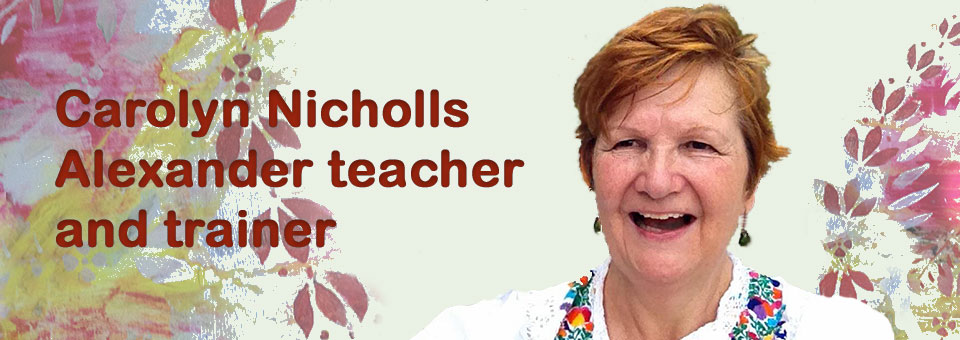Inner world, outer expression
You really can’t separate mind from body; there is no activity that uses only one or the other. Even if you think you are ‘only thinking’ your facial muscles are operating and your postural muscles are allowing you to sit in your chair. Likewise, although we yearn to ‘switch off’ occasionally, we never stop thinking – or rather our brain never stops being active. Our inner world of thoughts, feelings and emotions is reflected in our body, both in the way we hold ourselves, which you might call posture, and the way we move. It goes further than posture and movement; it also affects our functioning. If you are upset for any reason, you will find it affects you not only physically through tension but also functionally; you might lose your appetite or find your digestion has slowed down. Long-term mental tension creates long-term muscular tension, which in turn affects circulation, breathing and digestion. F. M. Alexander once said, ‘You translate everything, whether physical, mental or spiritual, into muscular tension.’
Just as your nervous system is a two-way messenger between your brain and your body, and thoughts, emotions and habits reveal themselves physically, so you can use your body to influence your feeling and habits. If you are depressed, it will show in your drooped shoulders, shallow breathing and slack muscles. In other words, your posture will show what is going on in your mind. But if you find a way to change your posture, to lengthen your torso instead of compressing it, to open out your hunched shoulders, then it will affect your mood, too, and you will feel better. Just how you set about making those changes is the subject matter of Alexander lessons and my books The Posture Workbook and Body, Breath & Being
Great summer reading that will inspire you to turn your sunbathing into intelligent semi-supine!
